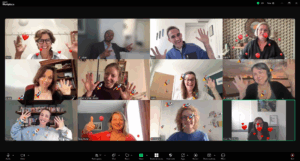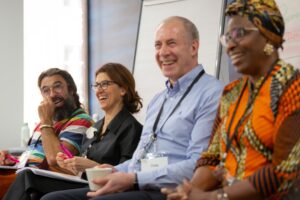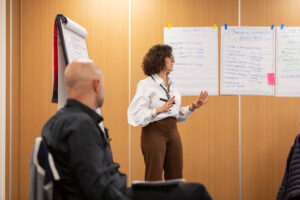When browsing social and news channels for a daily dose of insight into what’s going on in the world, the International Day of Dance pirouetted its way into our consciousness. With none of the CRRUK team famed for throwing any award-winning moves on the dance floor, it got us thinking about how dance can be a perfect metaphor for the way we interact within our relationships.
Getting in sync: the rules and rhythms of relationships
In any relationship, just as in dance, the way we interact with one another has its own set of rules. Some start slowly and clumsily, with the dancers occasionally stumbling, stepping on one another’s toes, or tussling over who takes the lead. Others adjust to the right tempo over time, getting into a rhythm where every move complements the other perfectly. Achieving a seamless finish, where all participants are in sync, is an art form. And one that is rarely achieved without a concerted effort on the part of all “dancers”.
All relationships rely on teamwork
For the vast majority of us, the relationships we encounter, whether at work or play, involve some kind of teamwork. However, it is important to learn to dance solo first – getting to know yourself and finding your own rhythm is a relationship in its own right. Only then can we learn to alter our own routine we come across someone who dances to a different beat.
In a team – and here is where the dance metaphor really comes into its own – problems arise when people become out of sync with one another. This can be when people want to move in opposite directions, lose the will to carry on, step on one another’s toes, or simply fail to work together.
Systems thinking in relationships
There’s a saying (one that we’ll all have heard, used, or perhaps just cringed at) that teamwork makes the dream work. But – whether it is a dance duo, a troupe, or one of the other many teams we find in our personal and professional lives – there’s no denying that achieving that dreamlike team synergy (or anything like it!) takes effort and patience.
To achieve this, a team must learn to act as one. They must move beyond Emotional Intelligence (relationship with oneself) and Social Intelligence (relationship with others) into the realm of Relationship Systems Intelligence, where the focus shifts to the relationship with the group, team, or system. Only then can they harness the power of the team.
But, we digress – back to the dance analogy! This kind of systemic thinking (the concept on which ORSC methodology is based) can be perfectly illustrated by conjuring up the image of a dance crew or team of acrobats. Every single person in the team is reliant on everyone else. If something changes in one area, it will have effects in places that often we won’t expect. For this reason, whether on the dance floor or the factory floor, synergy, trust, respect, and communication are all vital to success.
Find out more about Relationship Systems Intelligence
Want to learn more about how Relationship Systems Intelligence and ORSC can improve your relationships? Find out about our courses, which are suited to coaches looking to expand their capabilities and HR professionals who want to build productive and resilient teams.






